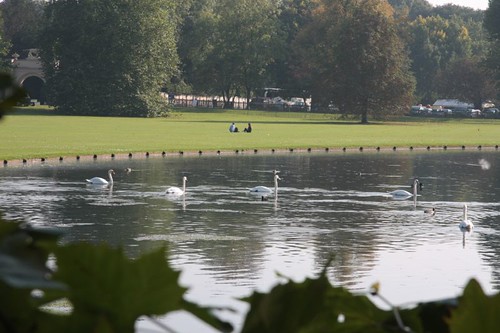If you manage a large team, including people with more specialised technical expertise than yourself, how do you ensure that your decisions are good ones?
Is decision-making an art or a science?
I think this is an important question. If you think it's an art, then it is only a short step away from saying "some people have 'it', and others don't." And if you think like that, then it is very hard, perhaps even impossible, to improve your decision-making.
So, I come down firmly in the camp that says it's a science. In other words, it can be approached methodically, and the process can be improved.
What do we mean by a "good decision"?
Some decisions are good in the short term, but not necessarily so in the longer term. Every parent understands this: when your two-year old is throwing a tantrum in the supermarket because she wants some sweets, do you give in for the sake of peace and quiet, or ride it out? The first option is undoubtedly better from a peaceful existence point of view, and to avoid embarrassment, but it's very much a short-term solution. In the long run, the child learns that tantrums work, and so your easy way out will cause more of the same in the future.
So, a good decision is one which:
-
Furthers the aims of the team in terms of its strategic plan.
-
Does not sacrifice the long-term for the short-term.
-
Is cost-effective.
-
Included the team, or at least leaves the team feeling that it has been listened to.
Less is more
So, how do you arrive at good decisions? Your decisions can only be as good as the information you have on which to base them. But "good" does not mean "plenty". In fact, the more information you have, the less likely you are to be able to use it effectively. The best thing to do is to ask one of your team to summarise the issues for you.
My preference has always been for what I call the "A4 Briefing". I don't care how complex a problem is, it should be explainable in no more than a side of A4 (or Letter if you're in the USA). In fact, one of my bosses insisted on no more than half a dozen bullet points.
Ask for options
What I also like is for the person who is summarising the information to outline some options. Nothing too complicated -- that would defeat the object -- but just enough to give me some hooks on which to hang my thought processes.
Take time out
Swans on the lake at Audley End. Watching them can help in your decision-making.
I think we have a tendency to hammer away at a problem, but often the best thing to do after some initial thought is to go away from it completely. An afternoon spent by a river, say, can work wonders, because while you're walking, your subconscious is working.
Now that's what I call efficiency!

